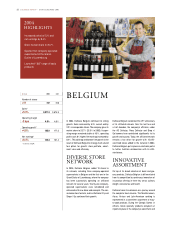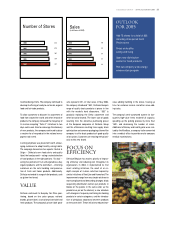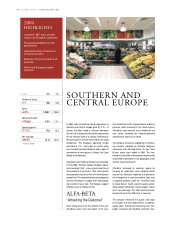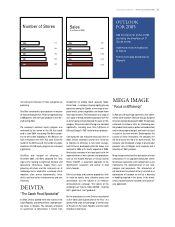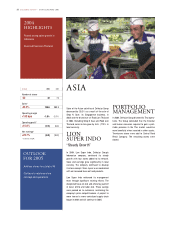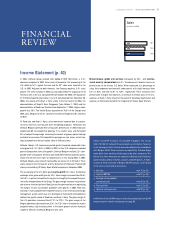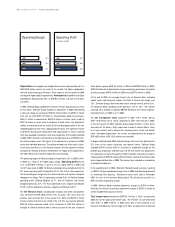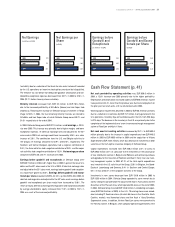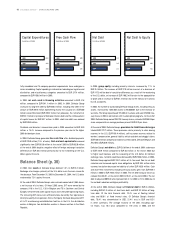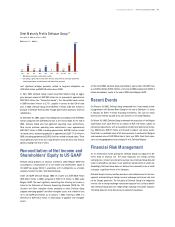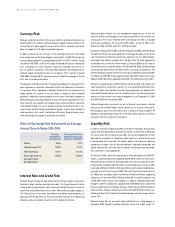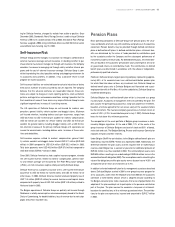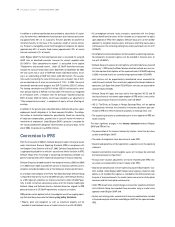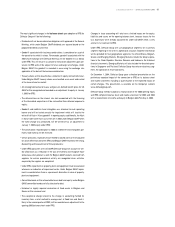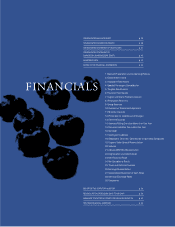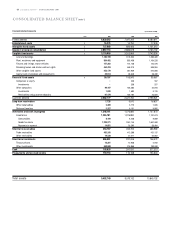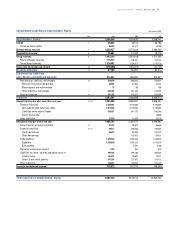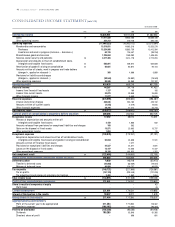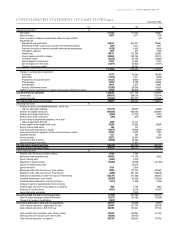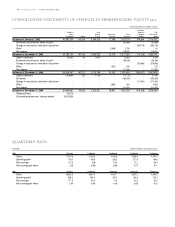Food Lion 2004 Annual Report Download - page 34
Download and view the complete annual report
Please find page 34 of the 2004 Food Lion annual report below. You can navigate through the pages in the report by either clicking on the pages listed below, or by using the keyword search tool below to find specific information within the annual report.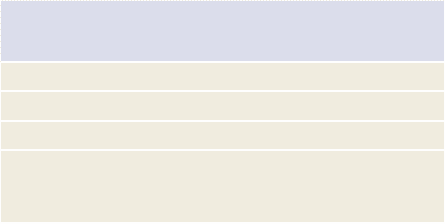
DELHAIZE GROUP ANNUAL REPORT 2004
32
Delhaize Group’s interest rate risk management objectives are to limit the
effect of interest rate changes on earnings and cash fl ows and to low er bor-
row ing costs. The mix of fi xed-rate debt and fl oating-rate debt is managed
within policy guidelines. At the end of 2004, 86.6% of the net debt of the
Group was fi xed-rate debt and 13.4% fl oating-rate debt.
During the fourth quarter of 2001 and the third quarter of 2002, Delhaize Group
entered into interest rate swap agreements to manage its exposure to interest
rate movements by effectively converting a portion of its U.S. dollar-denomi-
nated debt from fi xed to variable rates. Variable rates for these agreements
are based on the six-month or three-month U.S. dollar LIBOR and are reset on
a semiannual basis or quarterly basis. On December 30, 2003, Delhaize Group
cancelled USD 100 million of the 2011 interest rate sw ap arrangements. The
notional principal amounts of interest rate sw ap arrangements as of December
31, 2004 w ere USD 300 million (approximately EUR 220.2 million) maturing in
2006 and USD 100 million (approximately EUR 73.4 million) maturing in 2011.
During the second quarter of 2003, Delhaize Group entered into interest rate
swap agreements converting a portion of its euro-denominated debt from
fi xed to variable rates. Variable rates for these agreements are based on the
three-month Euribor and are reset on a quarterly basis. The notional principal
amount of these interest rate sw ap arrangements as of December 31, 2004
was EUR 100 million maturing in 2008.
Delhaize Group’s price and credit risk on its fi nancial investments is limited
because of the limited number and the quality of its fi nancial investments.
The Company’s short term investments have a rating of at least A1 (S&P) / P1
(M oody’s). Delhaize Group’s long term investment policy requires a minimum
rating of A-/ A3 for its fi nancial investments.
Liquidity Risk
In order to maintain funding availability through the economic and business
cycles, Delhaize Group closely monitors the amount of short-term funding and
the mix of short-term funding to total debt, the overall composition of total
debt and the availability of committed credit facilities in relation to the level
of outstanding short-term debt. The Group’s policy is to fi nance its operating
subsidiaries through a mix of retained earnings, third-party borrowings and
capital contributions and loans from the parent and Group fi nancing compa-
nies, whichever is most appropriate.
At the end of 2004, short-term borrowings of Delhaize Group were EUR 20.7
million, a signifi cant decrease compared to EUR 239.0 million one year earlier.
Delhaize America maintains a revolving credit facility with a syndicate of com-
mercial banks, providing USD 350 million in committed lines of credit in order
to provide additional fl exibility. Delhaize America had no outstanding borrow -
ing under this facility at the end of 2004. The credit facility will mature on July
31, 2005 and is secured by certain inventories of Delhaize America’s operating
companies. At the end of 2004, Delhaize Group SA, the parent company, had
a EUR 500 million treasury notes program. In addition, Delhaize Group had,
through its different companies, approximately EUR 209.8 million committed
bilateral credit facilities in Europe and Asia. Under these committed bilateral
credit facilities, Delhaize Group had at the end of 2004 EUR 20.7 million out-
standing in Short-Term Credit Institution Borrowings w ith an average interest
rate of 3.37%.
Delhaize Group SA has no credit rating published by a rating agency. In
December 2004, M oody’s Investors Services, w hich has a Ba1 credit rat-
Currency Risk
Because a substantial portion of its assets, liabilities and operating results are
denominated in U.S. dollars, Delhaize Group is exposed to fl uctuations in the
value of the U.S. dollar against the euro. In line with its risk policy, the Group
does not hedge this U.S. dollar translation exposure.
In 2004, a variation of one U.S. cent in the exchange rate of the euro would
have caused sales of Delhaize Group to vary by 0.9% or EUR 159 million and
earnings before goodw ill and exceptionals by 0.9% or EUR 3.7 million. During
the period 1995-2004, sales of the Group increased annually on average by
8.5%, including 7.2% sales increase at identical exchange rates and 1.3%
due to currency fl uctuations. Earnings before goodw ill and exceptionals of
Delhaize Group increased annually on average by 19.2% during the period
1995-2004, including 18.6% earning increase at identical exchange rates and
0.6% due to currency fl uctuations.
The payment of dividends by the U.S. operating companies to the parent com-
pany represents a signifi cant transaction risk for the Group due to variations
in currencies. When appropriate, Delhaize Group enters into agreements to
hedge against the variation in the U.S. dollar in relation to these dividend
payments. Additional currency exposure arises when the parent company or
Delhaize Group’s fi nancing companies fi nance the Group’s subsidiaries in their
local currency. Any sizeable intra-Group cross-currency lending is generally
fully hedged through the use of foreign exchange forw ard contracts or cur-
rency swaps. Delhaize Group’s subsidiaries borrow, in most cases, directly in
local currencies. As a result, fl uctuations in Delhaize Group’s balance sheet
ratios resulting from changes in currencies are limited.
Effect of Exchange Rate M ovements on Average
Annual Grow th Rates 1995-2004
Average
Growth Ra-
tes (Actual)
Average Growth at
Identical Exchange
Rates in 1995-2004
Sales 8.5% 7.2%
Operating profit 10.9% 9.7%
Net earnings 10.1% 10.4%
Earnings before
goodw ill and
exceptionals
19.2% 18.6%
Interest Rate and Credit Risk
Delhaize Group manages its debt and overall fi nancing strategies using a com-
bination of short, medium and long-term debt. The Group fi nances its daily
working capital requirements, when necessary, through the use of its various
committed and uncommitted lines of credit and commercial paper programs.
The interest rate on these short and medium-term borrow ing arrangements is
generally determined either as the inter-bank offering rate at the borrowing
date plus a pre-set margin or based on market quotes from banks.


